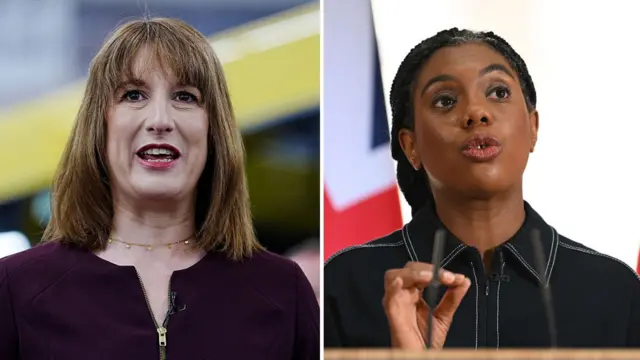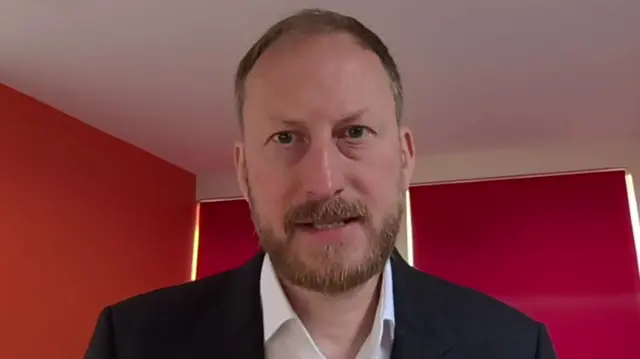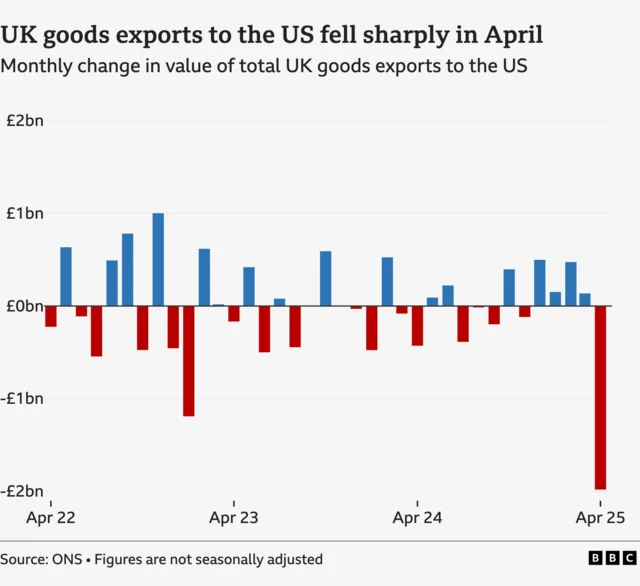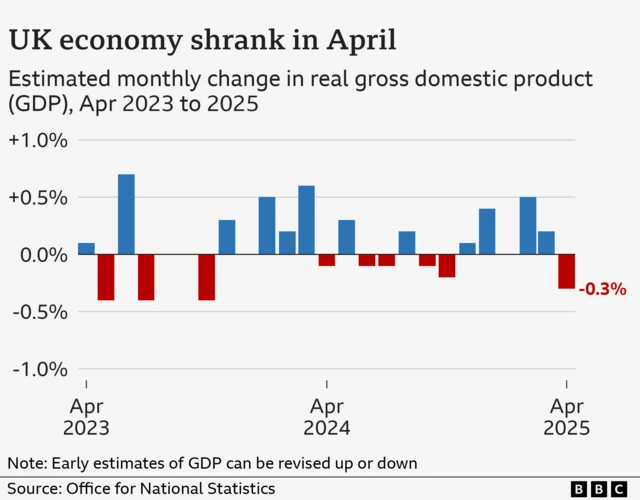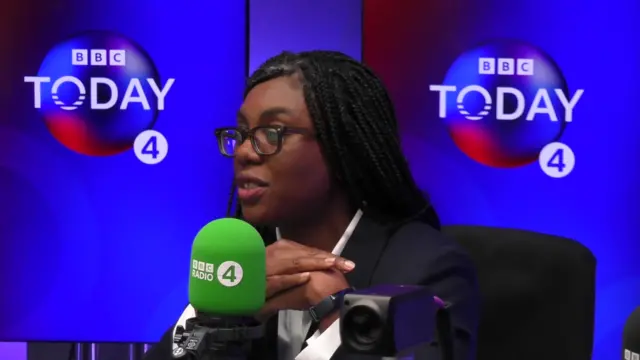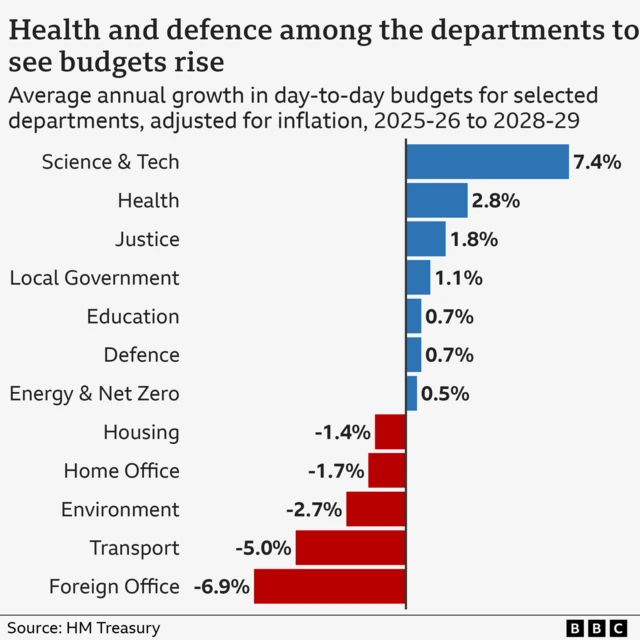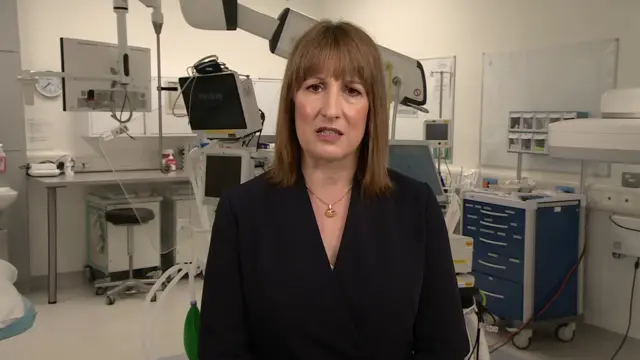Reeves defends 'difficult decisions' as Badenoch attacks borrowingpublished at 12:02 BST 12 June
 Jamie Whitehead
Jamie Whitehead
Live reporter
Speaking to the BBC this morning, Reeves defended her decisions for yesterday's Spending Review, saying that everything in yesterday's review was paid for by "difficult decisions".
She rejected claims from the National Police Chiefs' Council which said their numbers would be cut a s a result of yesterday’s announcement.
Conservative Party leader Kemi Badenoch also did the media rounds this morning, and accused Labour of spending future generations' money.
Along with all this reaction, we’ve also had the latest GDP figures, which show the UK economy shrank by 0.3% in April, and also the latest NHS figure for England, which show waiting lists dropped.
Paul Johnson, from the IFS think tanks, says that if things move in the wrong direction the chancellor will "almost certainly" have to raise taxes.
Our political editor Chris Mason says Reeves and Starmer cannot escape a sluggish economy, and Reeves did announce that some budgets would be squeezed.
We are bringing our live coverage to an end now, thanks for joining us.

